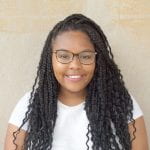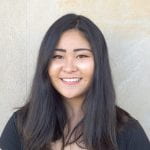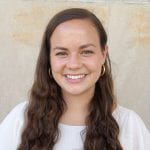


Ask any Civic Scholars Program alum what they valued most about the program, and they will most likely share something about the community they built or the experience of learning as part of a cohort. Although the Civic Summer experience is sometimes emphasized in elevator pitches about what Civic Scholars is, the true heart of the program lies in the group of individuals with vastly different backgrounds and interests who come together to support one another and grow together. Collaboration is central to the process of articulating personal values, navigating the summer experience, and making sense of the lessons learned.
In spite of the program’s emphasis on community and collaboration, most scholars’ Civic Summers were mostly independent from those of other cohort members until last year’s launch of the Collective Impact Grant, funded by a generous gift from Mickey and Debbie Stern. The grant enables scholars to pool their resources and access additional funding to address a common challenge and increase their reach. The pilot group, three scholars from the 2020 cohort, focused on peer-led education initiatives and public health in Uganda, Guatemala, and the U.S. This year’s Collective Impact Grant recipients are facing uncertainty about what the summer may bring, but they are using this time to think critically together about collaboration and its role in civic engagement.
Keishi Foecke, Kally Xu, and Mackenzie Hines-Wilson share a common interest in helping women who are marginalized by existing power structures to access high-quality, equitable healthcare. Keishi, a Fox-Clark Civic Scholar from San Mateo, CA, is a candidate in the 3-2 Master of Public Health program in the Brown School and a B.A. candidate in anthropology: global health and the environment with a minor in American culture studies. Keishi’s primary area of civic interest for the summer is in healthcare access for homeless communities. Kally, a Stern Family Civic Scholar from Madison, MS, is also pursuing a Master of Public Health as a part of the 3-2 program and is majoring in international area studies and minoring in Asian American studies. Kally’s focus is on reproductive justice and women’s health in the state of Mississippi. Mackenzie, a Fox-Clark Civic Scholar from St. Louis, MO, studies philosophy-neuroscience-psychology: cognitive neuroscience with a minor in anthropology, and her project centers on Black maternal mental health. Although the scholars’ three projects center on distinct populations with unique concerns, Keishi, Kally, and Mackenzie are working to think together about the intersections of identity and power that impact all three populations.
The scholars remind each other not to assume that the experiences of all women with marginalized identities will look the same. Part of Mackenzie’s individual project is to tell the stories of women’s experiences accessing healthcare in an ethnographic format, and by working with Kally and Keishi the number of voices that they can hear and uplift is dramatically increased. “We have the ability to tell the stories of women across the nation,” Mackenzie says, “and to convey that although there may be similar narratives among women within the healthcare system, there are still important and critical differences that need to be acknowledged as well.” Kally shares that one of the most difficult aspects of the planning process was to create a project that was “feasible, accessible, and non-essentializing.” “We didn’t want to create anything that could be exclusive to certain identities and groups of people, especially since we know that people’s lived experiences, needs, etc. are not monolithic. We didn’t want it to be a project about what we did, but rather what other people are doing, what we witnessed, what was impactful, and what we want to support,” she explained. The scholars aim to find ways to bridge and unite the experiences of women from varying backgrounds without erasing the individual and specific nature of their stories.
From the first time they learned about the grant opportunity, the scholars felt that it would be an ideal opportunity to connect more deeply with other cohort members and explore issues outside of their specific focus areas for the summer. “The prospect of collaborating with two other members of my cohort was exciting and intriguing,” Keishi shares. “While all 18 of us have very different experiences and interests, we are deeply invested in one another’s growth, and each person has valuable and thought-provoking perspectives to share on nearly any topic.”
Throughout the first semester, Kally noticed the intersectionality of the topics that each cohort member chose to center their project on. She explains, “I could see how my passions and interests intertwine with everyone else’s in some way.” Being a part of the Collective Impact team has inspired her to think about her own individual project in different ways: “The partnership makes me think about not only what I want out of my own topics and Civic Summer, but what I want out of the summer as a whole, working together through different topics, obstacles, and experiences. I am really passionate and committed to being in Mississippi for my own summer, but the Collective Impact Grant has helped me think about the work and experiences outside of my own state, and how they can all be put together to make a real impact and help people learn.”
Mackenzie was also interested in the overlap between different interest areas and the ways that each issue informs the others, particularly in the area of public health: “The healthcare system impacts women in multi-faceted ways, and thus, the system looks different nationally. That’s why I thought it would be great to apply for the grant with people who have similar passions for bridging the gaps within our system and specifically how they impact women with marginalized identities.”
The Collective Impact team has learned from experience how crucial collaboration is to civic engagement efforts. True civic change is rarely led by a lone individual. “Usually, it takes a group of people working together and looking at a problem from different angles to help aid the issue,” Mackenzie says. The aim of the Collective Impact team is to bring together their learnings and incorporate them into future civic engagement work. This goes back to the scholars’ emphasis on the interconnectedness of social issues. Kally reiterates, “Almost all topics are connected in some way, so I think that’s part of the reason why collaboration is so important to civic engagement work. A lot of our projects wouldn’t necessarily be as strong or where we would want them to be without the support of our peers, and it’s been really important for us to learn from each other’s experiences.”
Aside from the importance of incorporating ideas and learning together, collaboration has the practical benefit of giving good ideas the push that they need to get off the ground. For Keishi, when she’s stuck in the planning process, “collaboration can be the key for me to see new perspectives or explore new directions.” She also emphasizes the value of having a group of people to check in with about both individual and collective progress and setbacks. The accountability offered by the team propels their common mission forward.
In recent weeks, with the transition to online learning due to COVID-19, team check-ins and summer planning have gotten a whole lot harder to coordinate. Mackenzie sees the most immediate challenge facing the team as communication, as students across the country struggle to make the switch to online learning. “Everyone has a lot going on in their lives right now, so finding ample time to meet and discuss can be pretty difficult,” she says. Aside from pressing logistical challenges, for many scholars, summer plans are changing or uncertain. All the cohort members are working to create backup plans and identify remote options for continuing the work they had planned. Now more than ever, collaborative thinking is proving essential. Keishi says, “Being able to check in with Kally and Mackenzie about how to move forward has been a great help, as all three of us will still work together to pursue our collective goal, regardless of exactly what that means for us along the way.”
Mackenzie advises others who are seeking to collaborate on civic engagement work to “find people with similar passions about a certain topic and discuss how you all can contribute to working within the pertinent communities to aid in solving that issue.” In other words, it starts with a conversation. For the Collective Impact team, a conversation that began in the classroom continues and evolves as Keishi, Kally, and Mackenzie come together again and again to assess how best to work toward their common goal.